John Owen summarizes The Incarnation in his owen incomparable way.
My Spiritual Grandfather
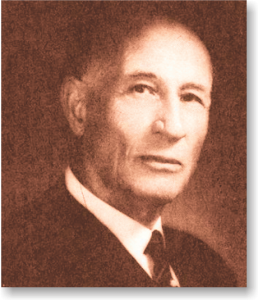 I was spiritually formed at a small Bible School near the Adirondacks called Pinecrest. Its founder was Wade Taylor. I regarded him as a spiritual father. His greatest gift to me was the hope and the truth that God could be personally known. One of his spiritual fathers was John Wright Follette.
I was spiritually formed at a small Bible School near the Adirondacks called Pinecrest. Its founder was Wade Taylor. I regarded him as a spiritual father. His greatest gift to me was the hope and the truth that God could be personally known. One of his spiritual fathers was John Wright Follette.
Follette was articulate and poetic. I have heard him pray in tongues on an old reel-to-reel tape—even there he sounded articulate! He was one of the great Pentecostal mystics of the twentieth century. In an era when priorities were shifting from the spiritual (knowing God) to sociological pragmatism in many denominations, Follette shone as a beacon of light, standing for the priority of the believer’s personal relationship with the Lord Jesus. He had great wisdom and insight into the Scriptures and into the ways in which God worked in the soul of the believer.
Follette had a salutary influence on Eugene Peterson, the translator of The Message Bible, and author of many books dealing with pastoral theology, the Psalms, and spiritual formation. Peterson was a great help to me when I was working on my doctorate. So I trace my spiritual lineage to Follette both through Wade Taylor and Eugene Peterson.
Follette’s greatest gift to me was that he set me free to be myself. From the beginning of my walk with the Lord, I had this peculiar inclination to write Christmas poetry. I was in a milieu where this kind of thing was not nearly as prized as, say, the spontaneous expressions we witnessed in Pentecostal meetings. And then I stumbled across Follette’s A Christmas Wreath, a collection of his yearly Christmas poems which he wrote for his students and friends throughout his adult life. I thought to myself: “Here is a highly regarded Pentecostal father who writes Christmas poetry! Maybe I’m on the right track after all. Here is another soul who has been captivated by the Incarnation.” Listen to Follette describe the dynamic here:
Every year, I think, “What could I write more,” but when the year comes around, He just drops one into my heart. You see, you are dealing with the Incarnation and that is inexhaustible. I approach it from every angle. I believe if I lived a hundred more years, I would still have a fresh one still dealing with that Mystery—God come down in flesh (J. W. Follette, A Christmas Wreath, ix).
Like Follette, the more I deal with the Incarnation, the more I realize the ways in which I have not written about it yet:
“The winds still whisper in the ancient tree.
A feast is spread where once the heart was bare” (Ibid., 6)
Rehabilitating Joseph
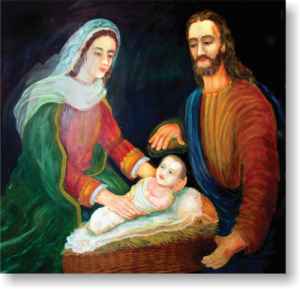 In my poem, “Joseph Dreams,” (December 7) I try to imagine the Christmas story from Joseph’s perspective. I base my surmising from the plain meaning of the text in Matthew 1:18-25, describing the dilemma Joseph had when he learned that Mary was pregnant and how his dilemma was solved by the angel of the Lord appearing to him in a dream.
In my poem, “Joseph Dreams,” (December 7) I try to imagine the Christmas story from Joseph’s perspective. I base my surmising from the plain meaning of the text in Matthew 1:18-25, describing the dilemma Joseph had when he learned that Mary was pregnant and how his dilemma was solved by the angel of the Lord appearing to him in a dream.
It wasn’t until the Middle Ages that Christmas itself as a celebration began to gain weight and significance within Western culture. In the early church and for many centuries thereafter, the main celebration of the year centered around the death and resurrection of the Lord Jesus at Eastertide. But during the Middle Ages, Christmas captured the imagination of common people. The Christmas Carol as a genre did not originate so much in the church but in the popular village celebrations of Christmas. It was a grass roots phenomenon, perhaps like how the composing and singing of Psalms in the Old Testament emerged outside of the sacrificial system ordained by Moses.
But as the common folk appropriated the great salvation story of the New Testament, and especially that aspect of it revealed in the Incarnation, various legendary notions began to attach themselves to the Christmas story. The Cherry Tree Carol is a good example. “When Joseph was an old man, an old man was he / He married Virgin Mary, the Queen of Galilee…” The carol pictures Joseph as a jealous old guardian of Mary instead of a man close to her age and a loving husband. In much of the Medieval and Renaissance art work depicting the Nativity, Joseph looks old enough to be Mary’s father.
But there is no warrant from Scripture to believe this. It’s far more likely that Joseph, while he may have been several years older than Mary, was close to her age. Matthew himself records for us that Joseph was righteous—not with the righteousness of the Pharisees which could be punctilious and mean-spirited—but with the classic Old Testament righteousness which was full of goodness and mercy. Even when he found out that Mary was with child, he wanted to treat her as carefully and as considerately as he could (Matt. 1:19). God could not have picked a better foster father for his Son. You could consider my poem, “Joseph Dreams,” as my contribution toward rehabilitating Joseph in the popular imagination.
Insightful Interview
On Air

Tom Worth reports as follows:
“I visited the Mars Hill Network radio station, perched atop Onondaga Hill where I live. Everyone welcomed me. Dawn Sessler was quite interested in my book and looks forward to interviewing me again when my next book is published.”
Enjoy listening to this five-minute interview!
Thoughts on “Like Walking on Water”

Our Christmas tree this year…
Often when I write a poem, I start with a metaphor; I sniff poetic possibilities in the wind and I follow these and see where they lead. I had been teaching in Mostar Bible Institute, in Bosnia-Herzegovina, in the fall of 2011. While I was in flight on the way home, this image of Jesus walking on the water came to me as a kind of parable of his Incarnation. So I followed the metaphor, saw where it led, and came up with the poem.
As in the old German carol, Lo, How a Rose E’re Blooming, my poem arrived at the same place the carol does: “She bore to men a Savior, when half-spent was the night.” F. Scott Fitzgerald, the great novelist who struggled with malaise, observed, “In a real dark night of the soul, it is always three o’clock in the morning.” Job, in the middle of his trial, his dark night, described it like this:
“Like a slave longing for the evening shadows,
or a hired man waiting eagerly for his wages,
so I have been allotted months of futility,
and nights of misery have been assigned to me.
When I lie down, I think, ‘How long before I get up?’
The night drags on, and I toss till dawn” (Job 7:2-4).
This is what I love about our Lord Jesus: He comes to us in the middle of the night, during the fourth watch—at three o’clock in the morning. He chose to arrive at the time when we needed him the most. In the middle of the night, when all the negative alternatives seemed so plausible—then he came with new life, new hope, a new future for us all.
Like walking on the water He came to us,
Born to Mary and Joseph long ago
Born our Savior, Christ the Lord,
Coming to us in the fourth watch of the night
And saying, “Take heart! It is I! Do not be afraid!”
Background to “Meditation on a Theme from Wesley and St. Paul”
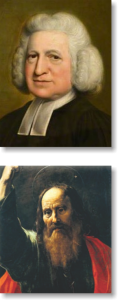
Charles Wesley and St. Paul
I wrote this poem with two passages in mind, one from Paul’s letter to the Philippians and the other from a hymn that Charles Wesley wrote. The passage from Paul is the great Carmen Christi (Song of Christ) found in the second chapter. Many scholars believe that Paul is quoting a hymn which the earliest churches sang in their meetings. In the process of encouraging the kind of humility he wanted the Philippians to follow, he refers to the Prime Example. Their attitude should be the same as Jesus Christ,
who, though he was in the form of God,
did not regard equality with God
as something to be exploited,
but emptied himself,
taking the form of a slave,
being born in human likeness.
And being found in human form… (Philippians 2:6-7, NRSV)
Charles Wesley wrote thousands of hymns, some of which we still sing today. I think his theology is deeper than his brother John’s. John was practical and pastoral in his theology and teaching. But Charles dealt with deep matters that could furnish the text for worship, adoration and thanksgiving. In this case, the third stanza of his hymn, “And Can It Be?” came to mind when I was writing my poem.
He left His Father’s throne above, So free, so infinite His grace;
Emptied Himself of all but love, And bled for Adam’s helpless race;
‘Tis mercy all, immense and free; For, O my God, it found out me.
The question is: if the Son of God emptied himself to become a human being, what was left? And the answer is: his identity—he is who he is. He was born with a personality just as you and I are. I believe Charles Wesley hit the nail on the head. The Lord emptied himself but what was left was his personality—the personality of God, which is his love. God is love. Jesus was born into this world, the love of God incarnate.
The Purpose of Advent

Tom and Marsha through the kitchen window
Those first twenty-five days of December we call Advent. It’s a time when we look forward to the coming of Christmas. But more than that, it exercises our spirits, prepares us for the Coming of the Lord, period. It stretches our souls so that we may see the kingdom of God come with power, as Jesus predicted to his apostles in Mark’s Gospel. That may mean his Second Coming; it may mean those special comings in which Jesus comes to us personally in some way, whether something as subtle as the smile of a friend, or something as dramatic as the Transfiguration. And Advent prepares us, most important of all, to apprehend the profound significance of our Lord’s Incarnation, his First Coming.
How do we get ready for the Coming of the Lord? When Marsha and I know the grandchildren are coming, we get the house ready. I should say, Marsha gets the house ready and I do what she tells me to do. She transforms our living room into a play room, she blocks the fireplace with toys and makes that corner into a play kitchen. And so on… And then we wait with bated breath, our hearts standing on tiptoe, waiting, waiting, waiting…
Advent is a season of waiting and expectation. We get our house ready, the house of the heart. As I said earlier, it exercises our spirits. And even though we may think we are only getting ready for Christmas, we are “getting in shape” to welcome the Lord, however he chooses to come. We look for Christ’s Coming and are built up in faith because he has come. And as we fathom that First Coming—it prepares us for his further Coming. But its preparation lies in the fact that this Coming of the Lord needs to be grasped by us for its own sake. The preparation is almost a glorious side effect. Virtue and grace are communicated to our spirits as we truly appreciate Christ’s Incarnation, his First Coming.
THE PERFECT CHRISTMAS GIFT JUST RELEASED: THE INCARNATION – TWENTY-FIVE POEMS FOR ADVENT ON THE WORD MADE FLESH
The beloved poems of Thomas Ryder Worth now available!
Brooklyn, NY, November 21, 2018 –
Thomas Ryder Worth’s long-awaited Christmas poems are finally available to the public this Christmas and Advent Season. EvangAlliance Publications wants readers and their families to experience the gospel afresh in the “key of the incarnation” within the pages of The Incarnation – Twenty-five Poems for Advent on the Word Made Flesh, their newly released title. Not only will the reader find a beautifully unique collection of Advent poems, prayers and meditations from author, Thomas Ryder Worth, but they will touch the gospel afresh within the pages.
“This music of the gospel,
‘the glad tidings which shall be for all people,’
was written in the key of the Incarnation.
And when all is said and done,
it must resolve itself in that keynote
in profound and eternal ways.”
-Thomas Ryder Worth, The Incarnation
Kilby wrote, “Poetry makes the half man whole by saying the things which he feels but cannot say.” This is exactly what readers sense when they read The Incarnation – Twenty-five Poems for Advent on the Word Made Flesh.
Publisher James G. Palumbo notes, “EvangAlliance Publications is dedicated to publishing classic Christian literature. The Incarnation – Twenty-five Poems for Advent on the Word Made Flesh is one such classic every reader will want on their shelves. Why? Because they will fall more in love with the One who became incarnate and dwelt among us.”
The incredible folk-art plates in the book have an incredible story behind them. Bulgarian artist, Petrana Petsova’s early Christian-themed paintings were seized and burned by the communists in her village. She was also a beekeeper and found that the canvases fit perfectly into the beehives. She would remove random honeycomb-frames and replace them with the finished canvases. She successfully hid the paintings there until the fall of communism in 1991.
This collection will be cherished by readers for years to come, and more editions are planned through 2021. Readers are also invited to contribute their own Incarnation poems for the Incarnation blog with possible inclusion in a future edition.
The Incarnation is available for purchase from Amazon and the audio-book from Audible and iTunes. It is perfect as a personal, family or church devotional, coffee-table book, Daily Reading for Advent, or Christmas gift for a loved one.
For more information visit: www.IncarnationPoems.org
“I have been a pastor for over thirty years and a Bible teacher for almost forty, but I have been a poet of the Incarnation the longest—forty-four years. The Incarnation is a poetic Advent Calendar, with a poem for each day in December leading up to Christmas. May the Lord bless you as you make your way through my reflections on the Coming of our Lord Jesus,” writes Dr. Worth
If you would like more information about this topic, or wish to schedule an interview, book signing or speaking engagement with the author, or would like special church pricing, please contact Carl Dobrowolski, Goodwill Rights Management at: carl@goodwillrights.com.
#Jesus #Christ #gospel #incarnation #Christmas #advent #poems #poetry
About EvangAlliance Publications – EvangAlliance is a non-profit organization seeking to deliver Christ-centered content that is relevant, contemporary, and deeply impactful. The goal of its founder, Jim Palumbo, is to go beyond “nice and interesting” and to empower people to draw near to God and meaningfully change their lives, families, communities, and the world. Look for another collection of Thomas Ryder Worth poems on The Incarnation in 2019, and their upcoming books, The Foundations of the Faith, Jesus According to John, and Start Your Business Today: 101 Business Ideas You Can Start with Almost No Money or Education
About Goodwill Rights Management Corp.: Headquartered in New York City, Goodwill Rights Management Corp. acquires top quality Christian content as well as licenses rights to numerous resources, including Bible translations and best-selling titles across categories.
Blog Coming Soon
Welcome to Incarnation Poems.
Check out the blog coming soon!


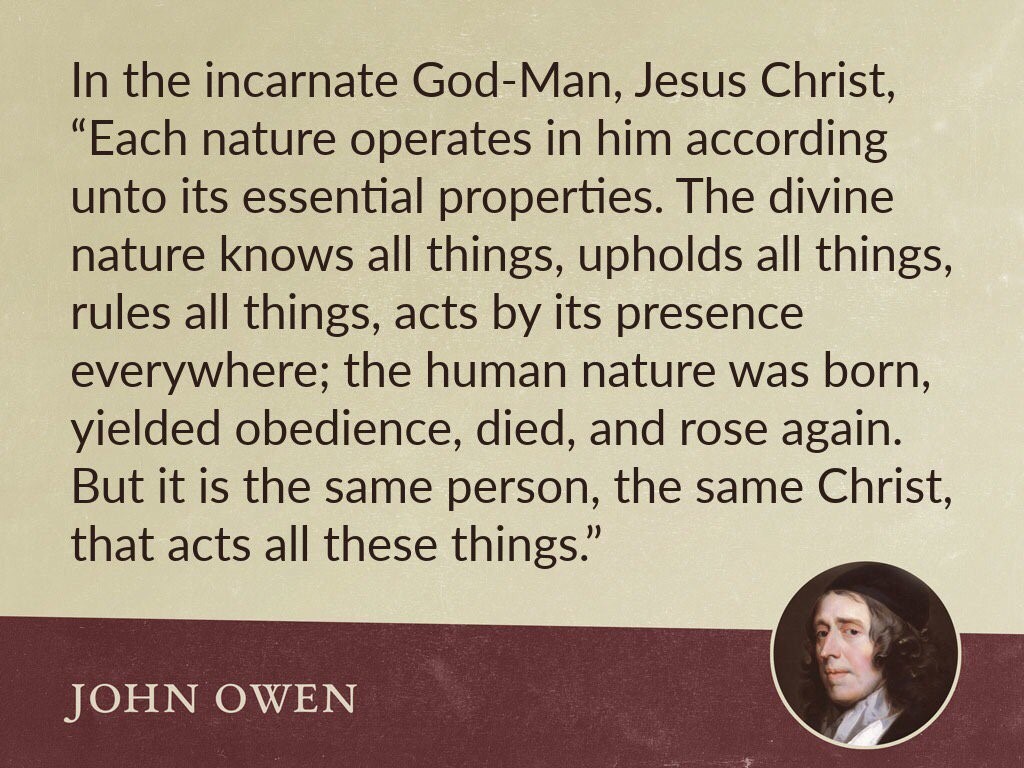
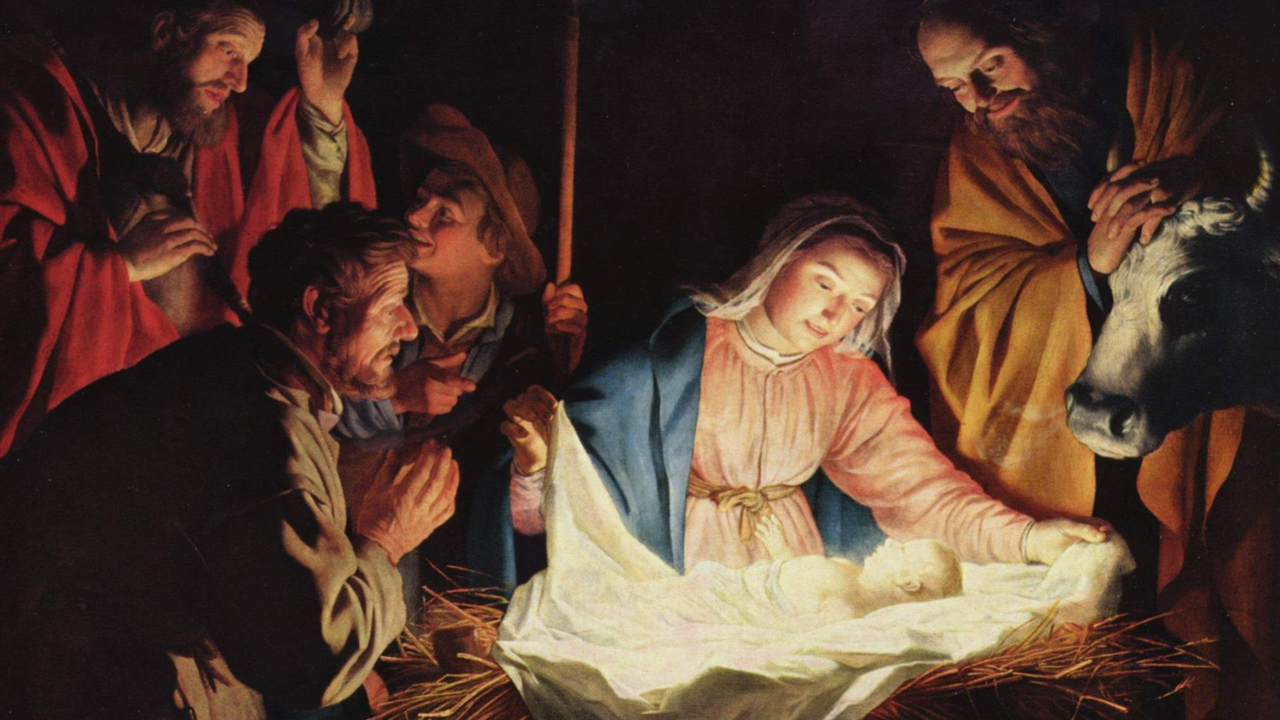

Recent Comments